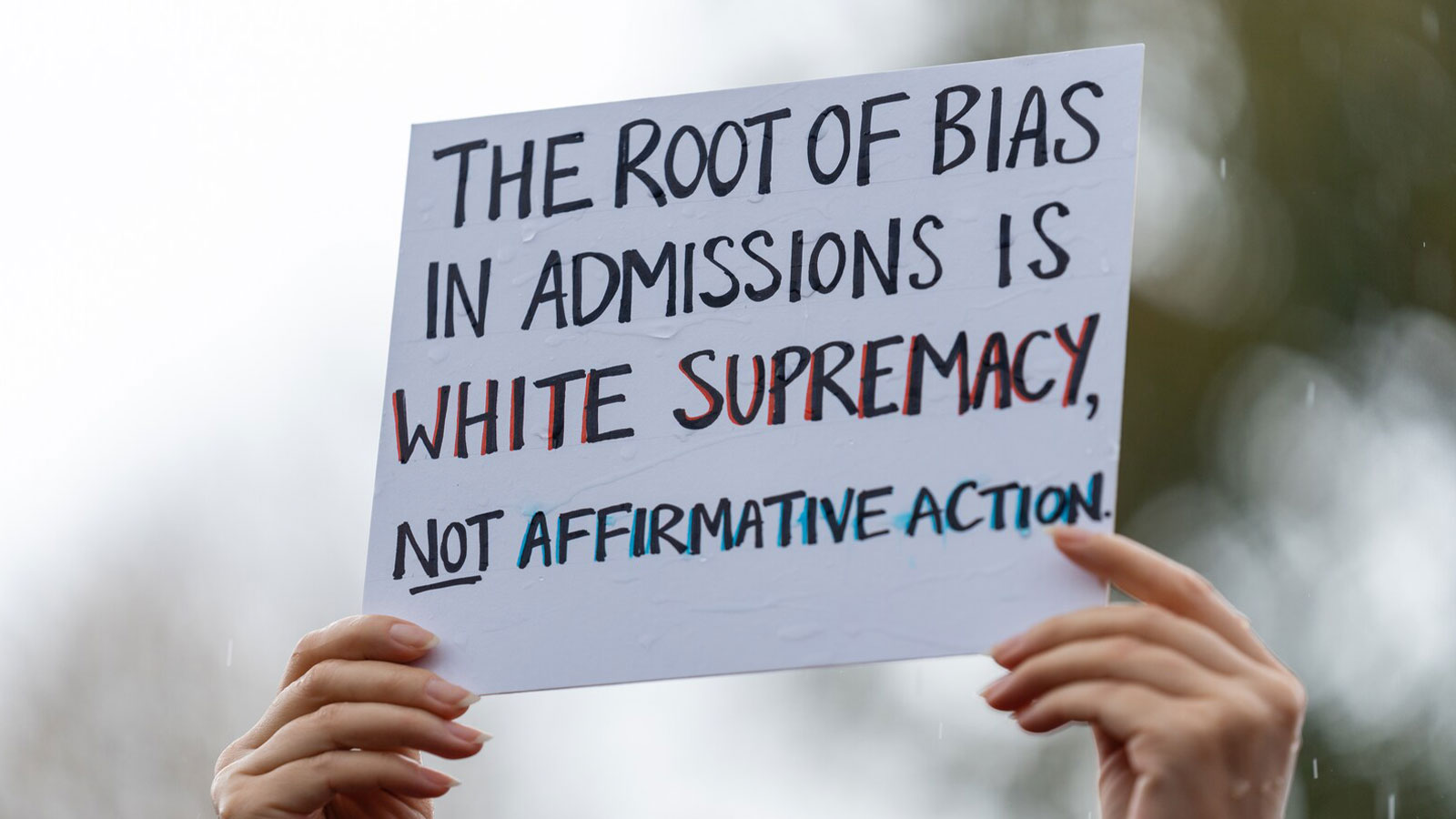Why aren’t we interrogating them about the Supreme Court’s ruling?
By Karen Attiah, Washington Post —
A very sweaty greeting from the Dallas heat dome. Temperatures here have risen to make my home city hotter than 99 percent of the rest of the planet. So far, our notorious power grid has held up. It’s probably no wonder I’ve been writing a lot lately about water, sinking ships and, yes, avoidable disasters.
In the United States, we have this myth that our democracy is a solid ship, the “arc of history” and progress moving in the right direction. But the Supreme Court decision to strike down affirmative action in college admissions is yet another sign that certain Americans are intent on torpedoing hard-earned progress — specifically, Black progress.
The think pieces, punditry and analyses will gush out over the next few days, and Black people especially are going to be asked for their reactions — to go on camera and express their pain, anger and indignation. Here’s my initial reaction:
Media outlets are going to rush to ask Black people to react to this.
Meanwhile, white women benefit the most from affirmative action and DEI policies.
Y’all should also be sticking the mics and cameras in their faces.
But yall won’t because we all kn… *signal drops* https://t.co/ZpBGA9xJBv
— Karen Attiah (@KarenAttiah) June 29, 2023
While the ruling was about college admissions specifically, the discourse has been on affirmative action more broadly in society. As Wendy Leo Moore wrote last year in Teen Vogue, in the aftermath of the civil rights movement, affirmative action was a “benign phrase used by presidents John F. Kennedy and Lyndon B. Johnson to indicate that the government needed to take purposeful action, or act affirmatively, to end discrimination on the basis of race and gender.”
But since then, right-wing critics have used considerable resources to almost exclusively frame affirmative action as a system of racial preferences and quotas — a system that, in their eyes, undeservedly benefits Black people.
It is well-documented that the people who have benefited most from affirmative action are White women. And yet White women have been the primary plaintiffs in almost all of the most important Supreme Court cases challenging affirmative action.
One of the most recent high-profile challenges in the realm of college admissions came from Abigail Fisher, who sued the University of Texas in 2008 for race-based discrimination after the university, a highly selective school, declined to admit her. Although her grades were not good enough to put her in the top 10 percent of her class, she claimed that she deserved a spotbecause she’d worked “hard.”
So this is my question: If White women have historically been both the beneficiaries of affirmative action efforts and its biggest detractors, why are we not interrogating them on what this ruling means? Why are Black people being made to answer for and about these systems, which we neither created nor greatly benefit from?
I know what the immediate answers will be when I bring this up. This was a ruling against race, not gender! And to that, I will say: It was a ruling specifically rooted in anti-Blackness, in efforts to halt Black access to advancement. To carry out that mission, Whiteness will use any means necessary, including deputizing White women and, in the case of this ruling, Asian minorities to carry out that mission.
When the 8a small business program was established in the 70s, Congress wouldn’t allow it unless white women were allowed to participate. Ultimately it was used by white men to maintain complete control of government contracting by using their wives as proxies to keep Blacks out. https://t.co/55fImEMo7r
— j. austin yoshino (@AustinYoshino) June 29, 2023
In not interrogating these truths, White women get to benefit from innocence and victimhood, even though the road to Thursday’s ruling was paved using them as Trojan horses of sorts. By focusing on the reactions of Black people, the discourse-makers in the media reinforce the misframing that affirmative action was exclusively supposed to — and does — give Black people a leg up. This narrative has led to non-Black people claiming that Blacks who exist in elite spaces are inherent thieves, that we have “stolen” a spot from a White woman or another “model minority.”
America’s ship of civil rights progress is taking in a lot of water at the moment. It will continue to do so as long as anti-Blackness remains a part of this country’s DNA.
The White men in charge of this country can and will come for White women, too. They’ve already begun with the fall of Roe v. Wade. Hope y’all are learning to swim, because you’re making it hard for the rest of us to come save y’all.
Source: Washington Post
Featured image: A person holds a sign in support of affirmative action during a rally on Oct. 31 in Washington. (Eric Lee for The Washington Post)















